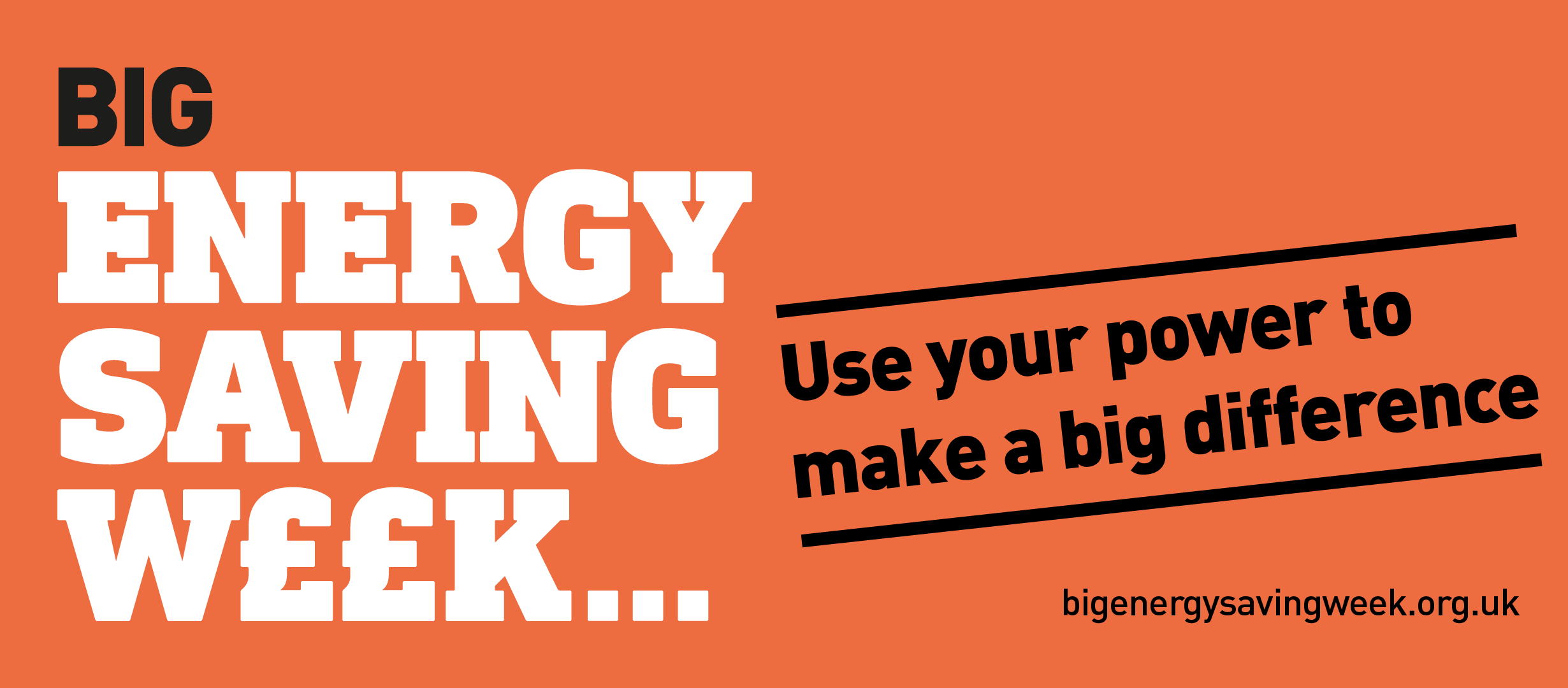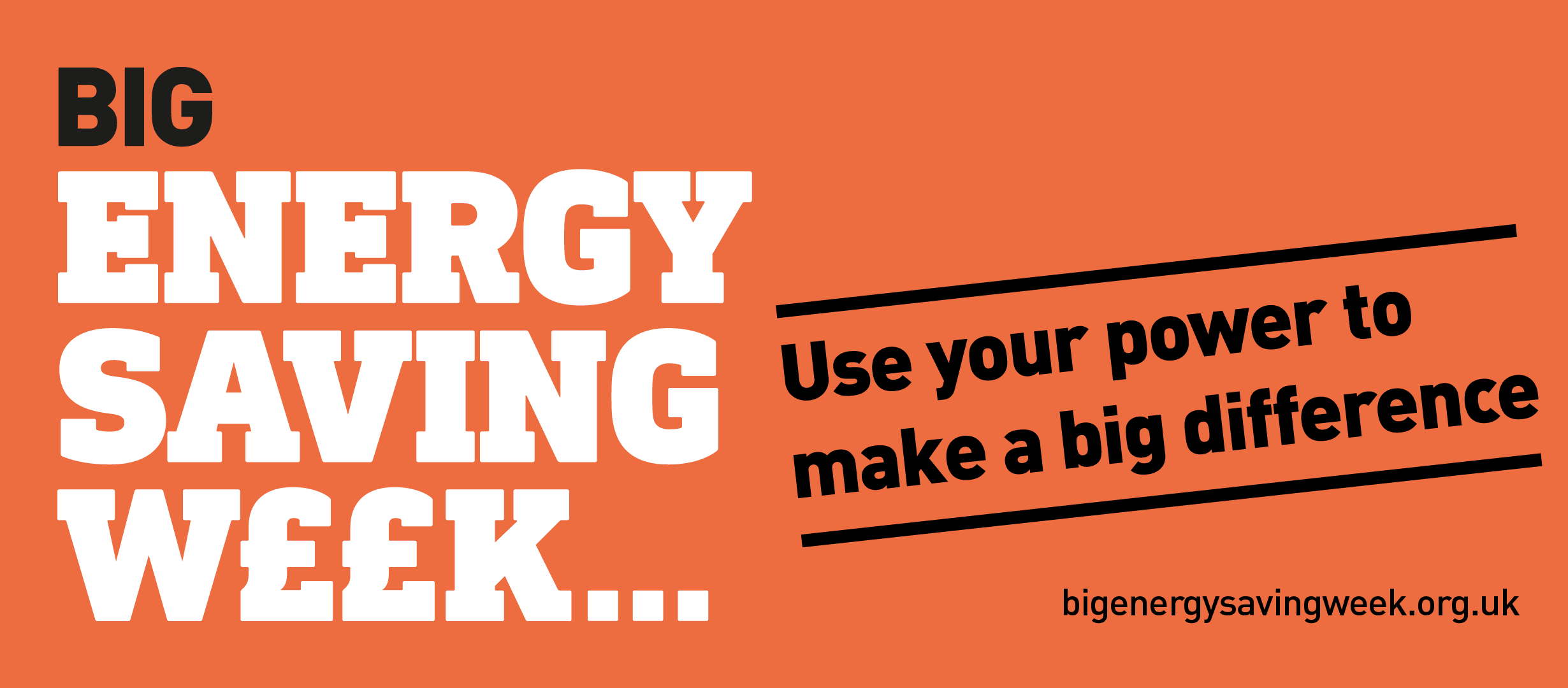This week (20 – 26 January) is Big Energy Saving Week - a national campaign led by Citizen’s Advice to help people cut their energy bills and get all the financial support they are entitled to.


We all have the power to save energy, money and the environment through simple, everyday actions.
This year, Newport City Homes is supporting residents and colleagues in finding more ways to save money by sharing 50 easy and simple ways to shave money off your energy bills.
We’ll be sharing this information on social media throughout the week, but if you’d like to find out the full 50 ways to save, we’ve listed them all below for you.
Come and make a pledge at @195 – you could win £50 in vouchers
We’re holding a drop-in event for residents at our city centre office, @195, on Thursday 23 January between 10am and 2pm.
You’ll be able to find out more information about how to save on your energy bills, and there’s some free gifts to be handed out too:
- Handy leaflets and tips on how to save on your energy bills
- Promotional giveaways for Big Energy Saving Week
- Make a pledge and enter our prize draw
If you promise to carry out just one of our 50 ways to save, you’ll be entered into a prize draw to win a £50 Love2Shop shopping voucher.
Can’t make it?
If you can’t make it to our drop-in event, you can still make a pledge to carry out one of our 50 ways to save online and enter our prize draw.
The winner will be announced on Friday 7 February on our website.
Click here to make your pledge.
Test your energy saving knowledge
If you're up to the challenge, why not test your knowledge with our energy saving quiz? Entries will be entered into a separate prize draw to win a second £50 shopping voucher.
#50WaysToSave on your energy bills
- Do you really need that light on? If not – switch it off!
- If you need a little extra help from your energy company -including large print bills or more support during a power cut – you can apply to be added to your supplier’s priority services register.
- Make sure you keep your heating rings as clean as possible - any food that sticks to the ring will absorb heat, which will make it less efficient.
- Visit your local Citizen’s Advice to get help in person about how to lower your energy bills.
- Fill the dishwasher completely before operating it.
- Turn off the dishwasher before the drying cycle so that you can wipe the dishes clean with a dry cloth.
- Install your dishwasher away from your refrigerator. The dishwasher’s heat and moisture make the refrigerator work harder.
- Remove water before putting clothes into the tumble dryer.
- On sunny days, take the opportunity to dry your clothes outside.
- Make sure you have a full load before washing.
- Select the shortest possible washing programme.
- Match pots and pans to stove plates. Small pots on large plates waste electricity.
- Do not use pots with distorted bottoms.
- Switch off the plates or oven before food is fully cooked. This allows you to finish your cooking without using energy.
- Keep oven doors closed until food is cooked.
- Do not preheat the oven. It isn’t necessary to preheat the oven except for food requiring high temperatures and slow cooking times.
- Make use of the oven’s leftover heat. Your oven retains heat for 15 to 30 minutes after it is turned off. Use that free heat to warm up desserts, rolls or freshen crackers and cookies.
- Glass and ceramic pans retain heat better than metal pans.
- When you defrost food, leave it in the fridge overnight. You’ll use less electricity than defrosting food in the microwave.
- Use the microwave to cook small to medium quantities of food. For larger portions of meat, it’s better to use a conventional oven or pressure cooker.
- Don’t open the door unnecessarily and make sure the seal is intact.
- Turn off an empty refrigerator when going on holiday.
- Let hot foods cool down before placing them in the refrigerator.
- Defrost fridges regularly. A build-up of ice reduces operating efficiency and increases running costs.
- Defrost the freezer regularly. Freezers work harder to remove heat and have to use more power. Only 90% of a freezer’s capacity should be used for freezing.
- Do not buy larger or more powerful appliances than are actually required.
- Do not buy an electric appliance when a hand-operated one will suffice.
- Use the correct appliance for the job e.g. do not make toast on the stove or in the oven.
- Do not fill a kettle if only a small quantity of boiling water is required. It is sufficient to put in only enough water to cover the element.
- It is more economical to boil water in a kettle rather than in a pot on the stove.
- If you’re boiling water, use a kettle or put a lid on the saucepan; the water will come to the boil sooner and use less energy.
- And if you’re boiling an egg, turn the heat off early and let the egg finish cooking in the residual heat.
- Check if you’re eligible for the Warm Homes Discount. Energy suppliers can provide rebates to households on certain benefits. The rebate is £140 for 2019/20 and you should contact your electricity supplier directly to see if you qualify.
- One of the best ways of conserving energy is to turn down the thermostat on your heating. Even turning it down by just one degree can save between £85 and £90 a year. If you feel a bit chilly, just put on an extra sweater …
- Get a smart meter upgrade free of charge – ask your energy supplier whether they can install one in your home. The government wants every home in the UK to have one by 2024.
- Take showers rather than baths. According to the Energy Saving Trust, if everyone in a family of four replaced one bath a week with a five-minute shower, they’d save up to £20 a year on gas bills.
- Keep curtains and blinds open during the day to let the warmth of the sunshine into your home. Close them at night to keep the heat in and the cold out.
- Bleed your radiators regularly – it will help to keep them working more efficiently.
- Keep your hob clean to make sure it works as effectively as possible.
- Dust and vacuum your radiators. Layers of dust stop heat from flowing freely.
- Dust your light bulbs. The dust reduces their intensity, which could encourage you to buy higher-wattage bulbs than you actually need, or, if you’ve got dimmer switches, to keep the lights brighter than necessary.
- Make sure there’s no warm air escaping, or cold air getting in, through gaps under your doors or in sash windows. If you can feel a draught under a door, buy or make a draught excluder
- keep the fridge door closed – opening it just once can let up to ¼ of the cold air escape. Don’t leave it open while you’re going back and forth to unload your shopping.
- Don’t leave the tap running while you’re cleaning your teeth, shaving or washing (your face or the washing up). A running tap wastes more than six litres of water a minute.
- Use a bowl to wash up rather than letting the tap run – you could cut about £30 a year off your energy bills.
- Don’t leave electrical devices on standby. According to the Energy Saving Trust, you could save around £30 a year simply by remembering to turn your appliances off standby mode.
- Turn off the lights as you leave a room, unless you’re coming straight back.
- Take chargers out of the wall socket. Never leave them switched on, whether they’re for your mobile, your e-reader, your laptop or your digital camera. They use power even when the device isn’t charging.
- If you have a regular boiler, turn down the thermostat on the hot water tank. This will mean the water in the tank never gets too warm. There is little point producing scalding hot water in the tank if you then simply add cold water in your mixer shower or bath to get it to a nice comfortable temperature. Making sure it is heated to the right temperature (and stored at the right temperature too) in your hot water tank is a great way to save on your heating bill and this is done by turning down the thermostat on the tank.
- Avoid blocking radiators with furniture – allowing convection currents to flow around the room as the hot air will be felt across the room quicker.
